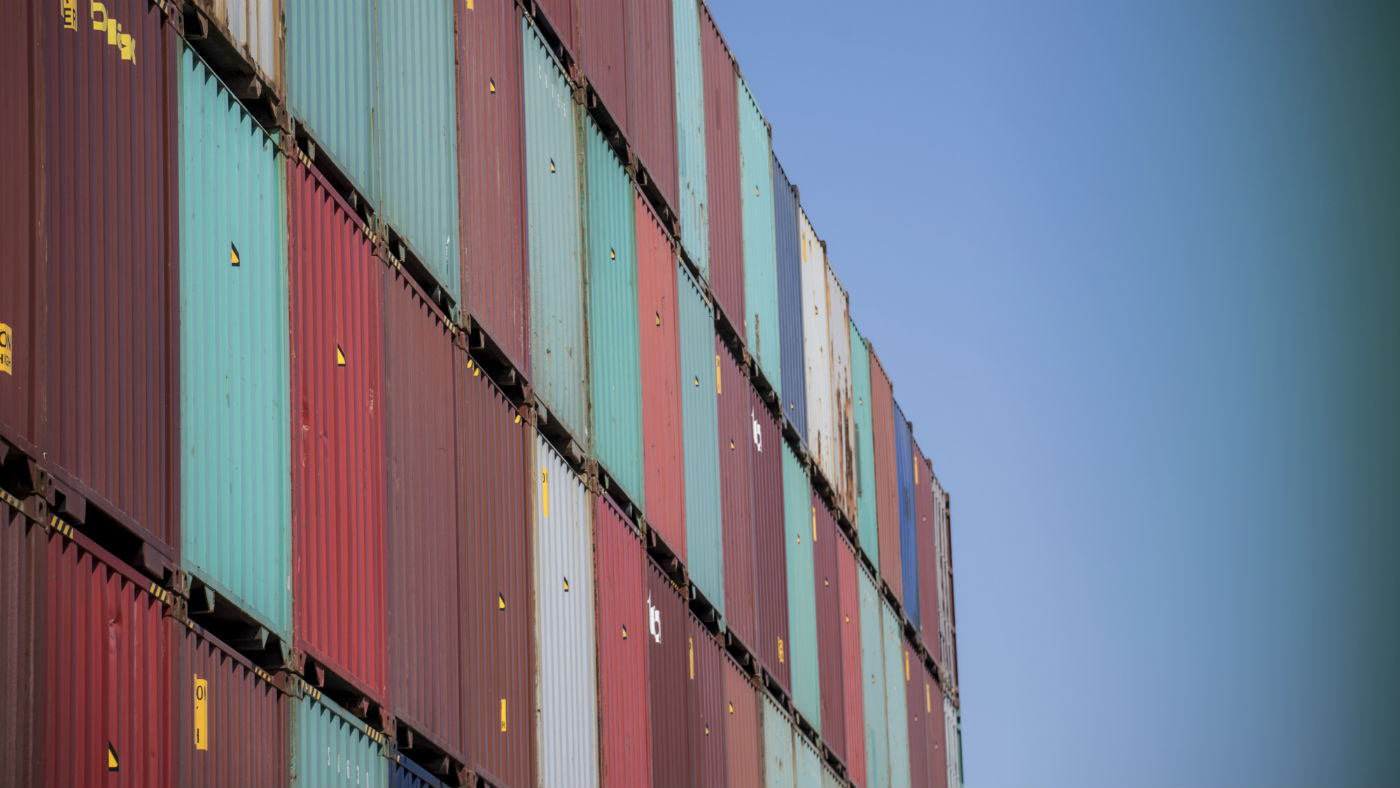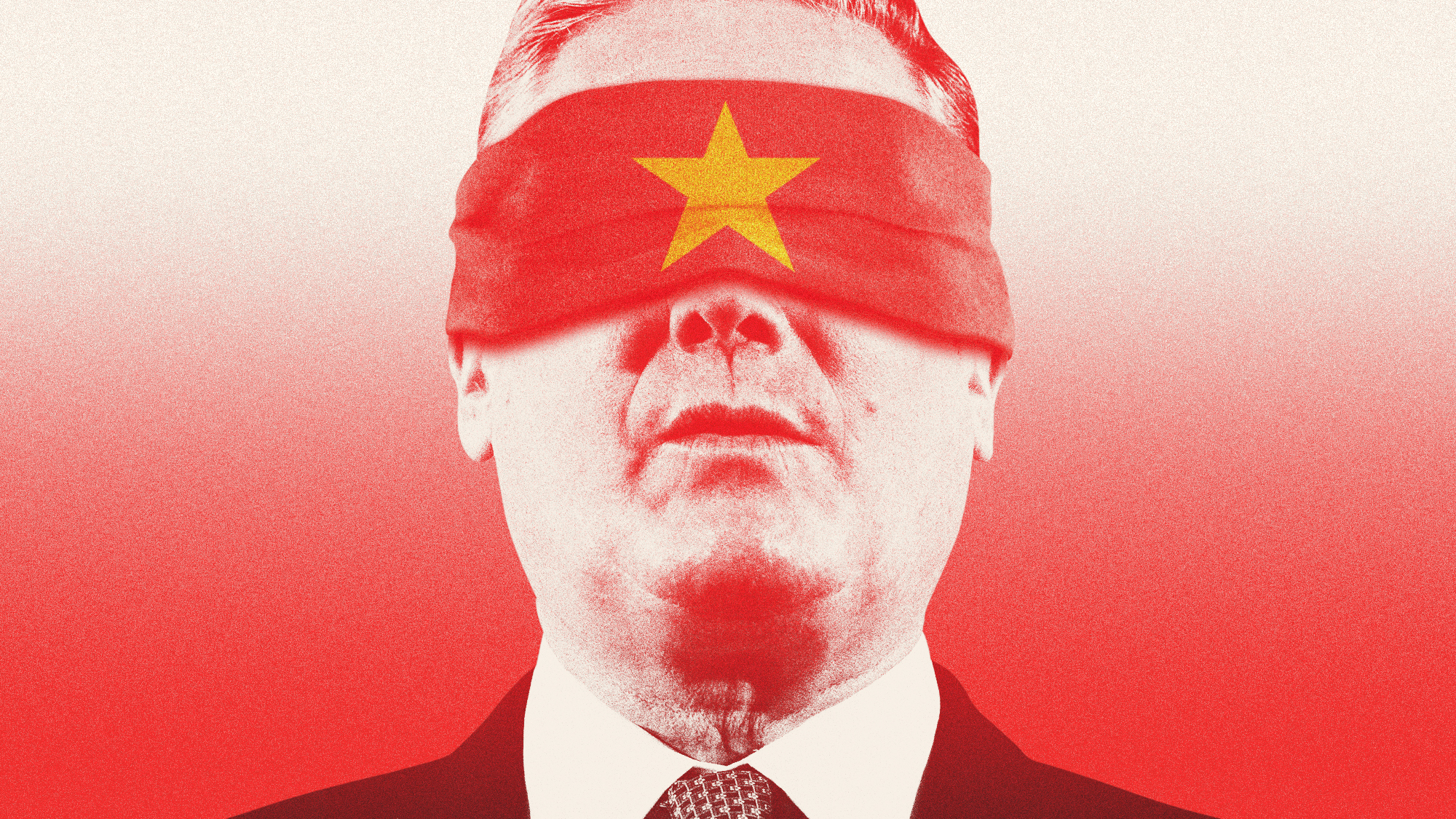What are ‘free ports’ and would they boost post-Brexit trade?
Boris Johnson and Jeremy Hunt accused of trying to turn UK into tax haven

A free daily email with the biggest news stories of the day – and the best features from TheWeek.com
You are now subscribed
Your newsletter sign-up was successful
Boris Johnson and Jeremy Hunt have been accused of trying to turn the UK into a haven for tax evaders and money launderers, after both Tory leadership rivals backed the creation of so-called “free ports” on the east coast of the UK.
The Guardian reports that “under proposals being considered by Johnson, Teesside, Aberdeen and Peterhead could become economic zones, considered independent for customs purposes, that charge no taxes or tariffs on imports”.
What is a free port?
The Week
Escape your echo chamber. Get the facts behind the news, plus analysis from multiple perspectives.

Sign up for The Week's Free Newsletters
From our morning news briefing to a weekly Good News Newsletter, get the best of The Week delivered directly to your inbox.
From our morning news briefing to a weekly Good News Newsletter, get the best of The Week delivered directly to your inbox.
According to the BBC a free port, “sometimes called a free trade zone or special economic zone, is normally an area of a country where its taxes and tariffs do not apply. So you can import goods, store them and re-export them without bothering the tax collectors”.
“These days they go further, allowing firms to import raw materials, make finished goods and then export them, with none of the border taxes that the rest of the country has to pay,” it adds.
What are the benefits?
In an article titled Are free ports the future? the BBC’s Jonty Bloom asks whether they could spark a post-Brexit manufacturing boom.
A free daily email with the biggest news stories of the day – and the best features from TheWeek.com
“Within the EU's customs union, large industrial free zones have limited use, after all you still have to pay customs taxes when bringing the goods into the EU from the free zone” he writes, “but after Brexit it could be a huge boost for areas like Teeside”.
Jerry Hopkinson, the chief operations officer at PD Ports which owns the main port on Teesside, says: “By 2040 there will be a £600m benefit. By 2040, 40,000 new jobs will be created. What we need to do is demonstrate that the upside benefits are proportionally greater than the loss of revenues in term of taxes.”
Sources in Boris Johnson’s leadership team told Scotland’s Press & Journal newspaper that giving either Aberdeen or Peterhead the same status after Brexit could create 17,500 jobs and attract business investment.
These claims are backed up by research from consultancy and construction firm Mace, which suggested establishing such zones in seven northern ports could generate more than 150,000 jobs and contribute more than £9bn a year to the economy.
The New Statesman says “the UK is currently prevented from establishing such zones as an EU member” but by integrating free ports with local enterprise zones, they would become “super charged”, providing a major boost to regional economies in the North.
And the drawbacks?
“Even if that is true, a Teesside free port is not necessarily a good idea,” says Bloom. “Free ports can also just encourage firms and investment to move into the free port where they pay no tax, away from other parts of the country where they do pay tax,” he says.
In March the European Parliament called for free ports to be scrapped across the European Union as part of a damning report on tax evasion and money laundering.
With tax evasion in the EU conservatively calculated at €825bn (£655bn) per year, MEPs have also sought to “close loopholes that potentially allow for financial crimes to be committed in free ports,” says The Art Newspaper.
Attacking the plans to introduce UK free ports after Brexit, Liberal Democrat leadership hopeful, Ed Davey, said: “Looking to free ports for economic salvation once they’ve pushed us off the cliff shows the desperation of Boris Johnson, Jeremy Hunt and Tory Brexiteers.”
“The British economy is fundamentally sound as part of the EU, but their vision means the UK would become one of the world’s most opaque, unregulated, and easily manipulated economies. We should be leading the world in business transparency, not promoting structures that have the potential to facilitate money laundering,” he added.
Ethical concerns aside, research by the University of Sussex-based UK Trade Policy Observatory into the potential of free ports in post-Brexit Britain found that relief on customs duties and tariff inversion are likely to be limited in the UK and any economic benefits brought to free zones could simply be diverting economic activity from elsewhere.
Port Strategy reports that “policy impact evaluations often suggest that the net benefit of free zones is limited”, pointing out that in the example of the US, while there are many jobs in the US foreign-trade zones, there is little evidence of how many are net creations”.
Rather than pursuing free ports post-Brexit, Bloom concludes “it would be far more effective to cut tariffs for the whole country rather than abolish them for one small corner”.
-
 What are the best investments for beginners?
What are the best investments for beginners?The Explainer Stocks and ETFs and bonds, oh my
-
 What to know before filing your own taxes for the first time
What to know before filing your own taxes for the first timethe explainer Tackle this financial milestone with confidence
-
 The biggest box office flops of the 21st century
The biggest box office flops of the 21st centuryin depth Unnecessary remakes and turgid, expensive CGI-fests highlight this list of these most notorious box-office losers
-
 How corrupt is the UK?
How corrupt is the UK?The Explainer Decline in standards ‘risks becoming a defining feature of our political culture’ as Britain falls to lowest ever score on global index
-
 Can Starmer continue to walk the Trump tightrope?
Can Starmer continue to walk the Trump tightrope?Today's Big Question PM condemns US tariff threat but is less confrontational than some European allies
-
 The high street: Britain’s next political battleground?
The high street: Britain’s next political battleground?In the Spotlight Mass closure of shops and influx of organised crime are fuelling voter anger, and offer an opening for Reform UK
-
 EU-Mercosur mega trade deal: 25 years in the making
EU-Mercosur mega trade deal: 25 years in the makingThe Explainer Despite opposition from France and Ireland among others, the ‘significant’ agreement with the South American bloc is set to finally go ahead
-
 Biggest political break-ups and make-ups of 2025
Biggest political break-ups and make-ups of 2025The Explainer From Trump and Musk to the UK and the EU, Christmas wouldn’t be Christmas without a round-up of the year’s relationship drama
-
 Is Keir Starmer being hoodwinked by China?
Is Keir Starmer being hoodwinked by China?Today's Big Question PM’s attempt to separate politics and security from trade and business is ‘naïve’
-
 ‘The menu’s other highlights smack of the surreal’
‘The menu’s other highlights smack of the surreal’Instant Opinion Opinion, comment and editorials of the day
-
 ‘Autarky and nostalgia aren’t cure-alls’
‘Autarky and nostalgia aren’t cure-alls’Instant Opinion Opinion, comment and editorials of the day